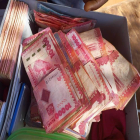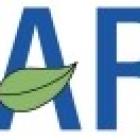
Argentina Zero Deforestation
Relevant information for EU and Argentine stakeholders about the EU regulation on deforestation-free supply chains.


Relevant information for EU and Argentine stakeholders about the EU regulation on deforestation-free supply chains.

Since the 2021 UN Food Systems Summit, there is broad consensus that agrifood systems must be transformed to become more resilient and sustainable and address mounting global challenges including climate change, natural resources depletion and biodiversity loss, environmental degradation, food and nutrition insecurity, and socioeconomic inequities. This is a prerequisite to achieve the 2030 Agenda on Sustainable Development and its associated SDGs. Agroecology is increasingly seen as an effective pathway to achieve the objectives of economic, social and environmental sustainability of food systems. It is rooted in both ecological science and traditional knowledge, and emphasizes the co-creation of knowledge, participatory governance, and context-specific innovation. As defined through the 13 principles of the High-Level Panel of Experts of the UN Committee on World Food Security (CFS) and aligned with the 10 elements of the FAO, it benefits from increased international attention and support. In line with the Global Gateway strategy, DG INTPA approaches agroecology as being open to innovation and to markets in bilateral, regional and global partnerships and actions through i.a.: strategic guidance and technical support to EU delegations (operational guide, Monthly Talks, support to the quality of operations); strategic partnerships with like-minded partners to leverage funds and impacts (such as IFAD); investments in Research and Innovation and in the development & deployment of Sustainability Assessment Frameworks (such as the FAO Tool for Agroecology Performance Evaluation TAPE+, and the IFAD Economic and Financial Assessment EFA+). This work contributes to supporting agriculture value chains development, nutrition, fisheries and food security, as well as to the wider aim of Directorate F to address global challenges such as climate change, circular economy, water management, biodiversity, etc.

The European Union reaffirms its continued support to the Sudanese people

Objective of the Project. To accelerate development of women and mainstream ecological organic agriculture subsector into existing national frameworks for agricultural sector development in order to enhance sustainable environmental conservation for improved health, income and food security by 2030.

The Climate Change Sector Reform Performance Contract project aims to transform Ethiopia towards a climate resilient and green economy. It specifically improves the capacity of stakeholders of the Climate Resilience Green Economy (CRGE) strategy. The project also facilitates policy dialogue on forestry, industrial energy efficiency, national Measuring - Reporting - Verification (MRV) system for emissions and climate change funds management.

ISDEHARAK empowers Iraqi youth through skills in demand in the labour market and fostering employability and entrepreneurship to capitalize on job opportunities in the agriculture and agri-value chains.

PASA – Programme d’Appui au Secteur de l’Agriculture en Algérie y compris dans la gestion de l’eau, l’agro-industrie et la pollution agricole Le « Programme d’Appui au Secteur de l’Agriculture, y compris dans la gestion de l’eau
A 4 and 6 legged robot "insect inspired" designed and built by Joseph Caristena and the ES Design Team. After the "Proof of Concept" of Heron v2018, here comes the revolutionary 6 legged robot called "Heron v2020". Robots are

The European Initiative for Agricultural Research for Development (EIARD) is an informal European donor coordination platform on agri-food research and innovation (R&I) in low- and middle-income countries. The platform aims to foster exchanges to promote coherent European policies and investments at international, regional and sub‐regional levels in order to increase the impact of agri-food R&I systems, in particularly towards advancing on the SDGs.

The "GMES and Africa" process was launched by the Maputo Declaration, signed on 15 October 2006. The initiative aims to strengthen and further develop infrastructure for more coherent exploitation of Earth Observation data (space